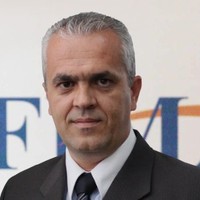São Paulo – AFIMAC, a global consulting firm active in security, risk management and emergency response, is looking to help Brazilian companies that engage in trade with Arab countries with their overseas activities. AFIMAC is active worldwide, including the Arab countries and the entire Middle East. It has recently become an Arab Brazilian Chamber of Commerce member company.
“We are interested in assisting businesses with operations away from their home countries as regards the safety of its executives, who are usually expatriates, as well as the continuation of activities amid adverse circumstances of any sort, such as civil wars, natural disasters and pandemics,” AFIMAC vice-president of Operations Agnaldo de Oliveira told ANBA.
The company operates in several Arab countries with trained security personnel, but studies are underway for its first Middle East unit in Abu Dhabi, UAE, Oliveira said. AFIMAC’s Brazilian headquarters are in Barueri, São Paulo. The company also boasts a unit in Rio de Janeiro and trained third-party personnel across Brazil, with a 60-strong staff and 500 hired workers each year.
With global headquarters in Plantation, Florida, USA, AFIMAC spans over 180 countries, providing emergency services and ensuring continued business amid force majeure situations. “In Brazil, the company is active in security consulting, executive transportation and protection, investigation, lectures, courses and seminars, GPS tracking with panic buttons, and urban emergency response,” explains Oliveira.

According to the Operations VP, AFIMAC went in business to address a major gap in the security industry by creating a premium investigation and security product for corporate clients in need. It made its entry into Brazil in 2005, at first via a partnership with MENA International Security Group, a flagship security outfit which it bought out in 2012.
When the Covid-19 pandemic broke out, AFIMAC adapted its services to the new reality. “We fine-tuned our workplace access control and safety services and developed new tools for monitoring and assisting people working from home, or those whose line of work requires that they go out,” explains Oliveira.
Two products have been purposely designed to match businesses’ and executives’ needs amid the pandemic. One of them is MIDPAC, a workplace access control tool for corporate clients, staff, suppliers and visitors. “It provides safety to anyone entering the facilities and helps keep the virus from spreading,” says Oliveira. Originally designed in Canada, the product has been adapted to the Brazilian context.
The other product is CAP Advantage, available for individuals as well as corporate entities. It includes monitoring, corporate travel risk management, and real-time updates on security scenarios for sales teams or executives. “Moreover, anyone with these needs can purchase directly from our website and start using the service right away,” he explains. This is a USA-made product which has also been tailored to match Brazil’s reality.
Oliveira notes that both products were previously available with an emphasis on keeping people safe in corporate or industrial settings. “MIDPAC has been in existence since 2014, and it’s an industry standard in Canada when it comes to access control and ID validation in public and private settings. Big business of the likes of Uber and Google have been relying on it for over two years in North America,” he asserts.
CAP Advantage is an alternative to AFIMAC’s original CAP (Crisis Assistance Plus) solution, designed for business or leisure travelers who require more than one health insurance at an affordable rate. CAP covers traveler safety and physical integrity in the event of kidnapping, robbery, extortion, undue arrest or disappearance, as well as business travelers headed for countries with high crime rates.
Unlike the original CAP product, solely intended for people traveling abroad, CAP Advantage is available domestically. It also includes Covid-related services such as guidance on the disease, hospital bed availability at each destination, warnings about high contagion risk areas or micro-regions, cancelled flights, closed roads, or new legal guidelines put in place.
AFIMAC notes that these products are also available in Arab countries, with the exception of Iraq. Oliveira reveals that the services have been met with great acceptance in Brazil. “Most of the Brazilian companies that chose to use our access control and monitoring services are also active away from Brazil, and they are in a better position to weigh out the consequences of underestimating the problem that is facing the planet right now,” he says.
Translated by Gabriel Pomerancblum




